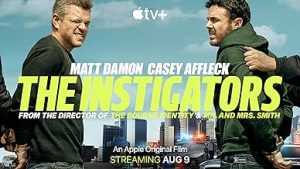
Businessman shaking hands discussing a contract agreement.
In the world of law, attorney advertising is more than just a promotional tool; it’s a crucial factor in a law firm’s success and profitability. However, despite the evolution of legal advertising over the decades, it continues to pose significant legal ethics challenges. In this comprehensive guide, we will delve into the intricacies of attorney advertising and the ongoing debates surrounding it.
The Evolution of Attorney Advertising
The landscape of attorney advertising underwent a transformation with the 1977 Supreme Court ruling in the case of Bates v. State Bar of Arizona. This landmark decision legalized attorney advertising, shattering long-standing barriers. Since then, the rules have evolved, and states have generally become more lenient when it comes to lawyer marketing.
Thomas Spahn, a counsel at McGuireWoods and an author with an extensive body of work on attorney ethics, explains that the restrictions on attorney advertising are eroding over time. However, a significant point of contention lies in the vast variance among states’ ethics rules for attorney advertising, potentially harming consumers on a national scale.
To navigate this complex web of rules and regulations, attorneys looking to embark on advertising campaigns must consult their state bar association rules and protocols, advises Spahn. This ensures that their advertising efforts are both effective and ethically sound.
Philosophical Stumbling Blocks to Attorney Advertising
Despite the relaxation of advertising restrictions, a fundamental philosophical tension lingers in the legal community regarding attorney advertising. Many lawyers hold the view that advertising is unseemly, raising concerns that legal advertising may exploit those who need counsel the most but lack the ability to evaluate an attorney’s claims.
On the other hand, some argue that legal advertising serves as an information source that helps people access knowledge they wouldn’t otherwise have. Elizabeth Tippett, an associate professor at the University of Oregon School of Law, specializes in studying how legal advertising influences consumer behavior, shedding light on the dual nature of this practice.
Truth in Advertising: A Complex Tightrope
Legal ethics demand that attorney advertising must be honest and free of misleading information, regardless of whether it is entirely truthful. States universally prohibit attorneys from using false and misleading content in their advertisements. This prohibition extends beyond outright falsehoods and includes omissions of facts and even debatable opinions.
In some jurisdictions, attorneys are allowed to state that they “specialize” in a particular practice area but cannot claim to be “specialists” without certification in that field. The use of superlatives like “the best” is typically restricted, except when supported by an independent peer assessment, such as U.S. News’ Best Lawyers list.
Even when the information is factually accurate, if it misleads potential clients, it may be considered a violation. For instance, if a law firm accurately reports a $1 million court victory but implies that future clients will achieve similar results, that would be a breach of ethical standards.
The Broad Definition of ‘Advertising’
Attorney advertising encompasses a wide range of communication methods lawyers may employ to reach the public. This includes traditional forms such as commercials, brochures, business cards, and stationery. Depending on the state, it can also include a firm’s website, newsletters, and more.
Some states, like Florida, Nevada, and Texas, mandate that attorneys submit almost all advertising to the bar for review. However, exceptions exist, even in these states. The definition of what constitutes advertising can vary, making it crucial for attorneys to understand the nuances in their jurisdiction.
Advertising vs. Solicitation: A Blurred Line
While attorney advertising is generally permissible, solicitation is often restricted. Solicitation refers to communication directed at an individual with whom the attorney does not already have a personal or professional relationship. The line between advertising and solicitation can become blurry, often hinging on the intrusiveness of the communication.
For example, attorneys may send informational letters about rights to everyone in a specific zip code, but certain states may restrict attorneys from sending letters to accident victims regarding their rights to sue, as these individuals might be too traumatized to make informed decisions about legal representation.
Technology further complicates this issue. Communication via text or online chat is considered advertising since it can be easily ignored. However, whether an attorney’s action qualifies as solicitation may depend on whether their camera was on or off during a Zoom meeting.
Paying for Advertising: The Ethics of Fees
While attorneys can pay flat fees for advertising, compensation based on advertising’s success, especially when nonlawyers are involved, raises ethical dilemmas. Paying marketers a percentage tied to referrals can be considered an unlawful fee split.
Attorneys can pay online directories for listings that are equivalent to a phonebook entry. Still, they should refrain from paying directories to match clients with them or recommend their firm, as this could constitute a prohibited referral fee.
Attorney Contact Information: A New Challenge in an Era of Remote Work
Many states require attorney advertising to include the address of the firm’s bona fide office, where attorneys regularly work. Representing a virtual law firm with a P.O. Box, communal workspace, or an answering service as contact information can be deemed false advertising, potentially causing ethical violations.
For solo practitioners and small firms, this advertising rule presents a unique challenge, as they strive to comply with remote work ethics while maintaining a legitimate physical presence.
Regulating Attorney Advertising in Specialized Fields
While the trend in legal marketing is to reduce restrictions, there is a growing call for increased regulation of advertisements related to drug and medical technology mass tort litigation. The attorney advertising landscape has witnessed a surge in drug injury claims, with annual spending exceeding $114 million.
Between 2015 and 2022, there were over 370,000 television commercials related to a single drug injury mass tort—linking talcum powder use and cancer. Studies have shown that these advertisements significantly impact consumers, sometimes with dire consequences, such as patients discontinuing medication after exposure to these commercials.
Several states have begun regulating drug injury advertisements, but a significant proportion of these ads are run by marketers rather than lawyers, creating a regulatory challenge. Transparency, oversight, and national-level regulation have been proposed as potential solutions to ensure the protection of consumers.
In the words of Elizabeth Tippett, it’s evident that legal ethics rules alone cannot effectively regulate attorney advertising. A comprehensive, transparent, and nationally coordinated approach, led by an agency like the Federal Trade Commission, is essential to safeguarding the interests of consumers.
In conclusion, attorney advertising is a dynamic and evolving field, with legal ethics playing a crucial role in shaping its contours. Attorneys must navigate the intricate web of rules and regulations, ensuring their advertising efforts are both effective and ethically sound. As the legal landscape continues to evolve, so too must the ethical considerations that guide attorney advertising practices.
Read More: Can You Deposit Cash at ATMs?: What You Need to Know








